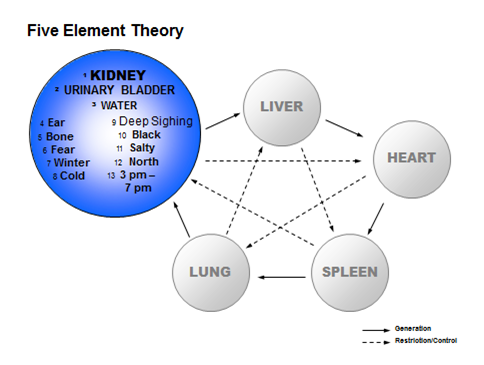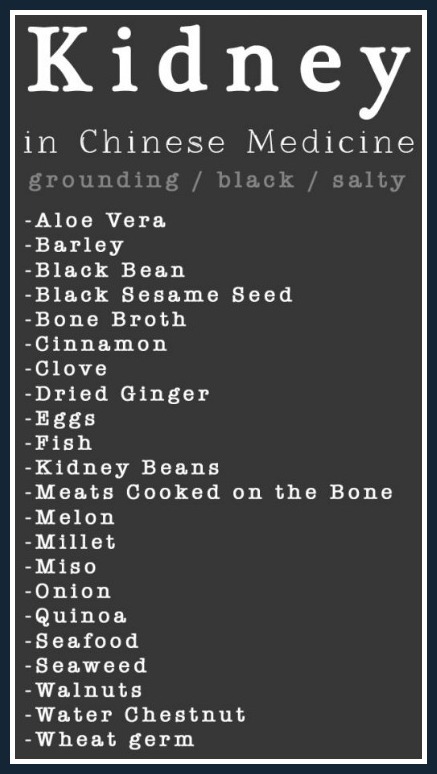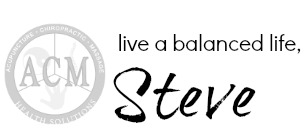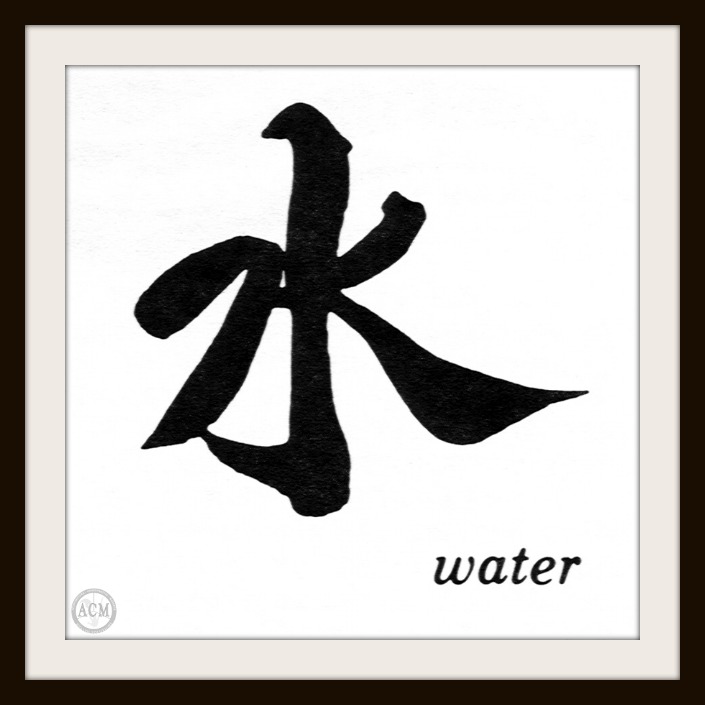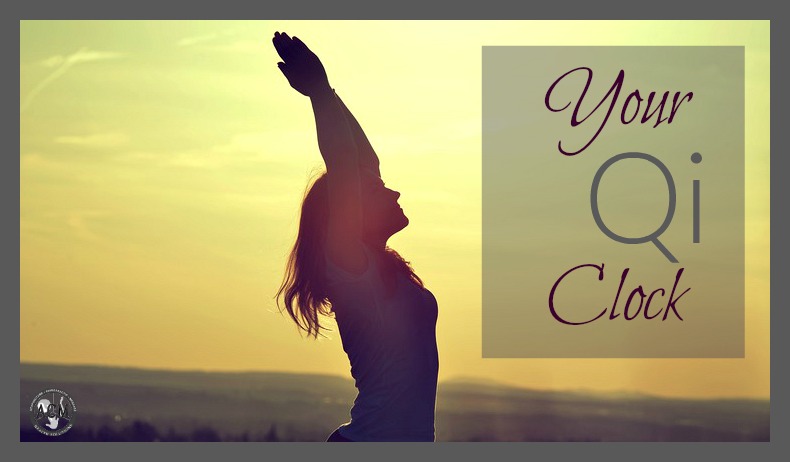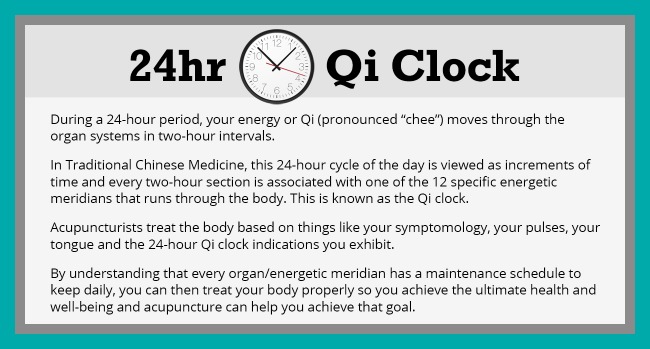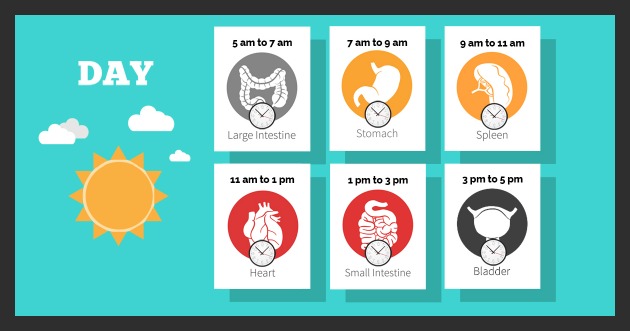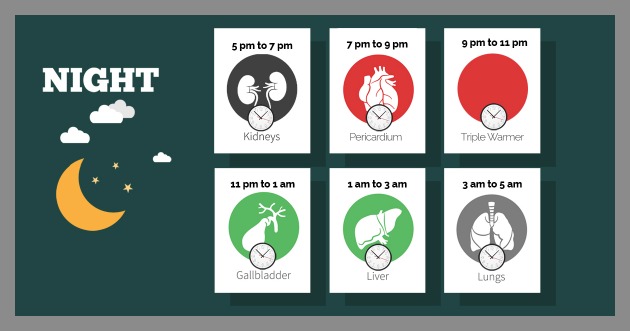-
Book Online Now - Acupuncture Solutions3900 Pebblecreek Ct #101
Plano, TX 75023972-612-4900 - 6501 Wesley St #A-1
Greenville, TX 75402903-213-3679 Learn more about…
#autumn #balance #behappy #fall #familytime #germs #healthlyliving #healthyskin #immunesystem #organs #psoriasis #seasons #sunscreen #thinkpositive acupressure acupuncture allergies anxiety coronavirus covid-19 depression diet digestion energy exercise headaches health heart herbs kidneys liver lungs meditation migraines nutrition pain pms qi sleep spring stress summer tcm Traditional Chinese Medicine winter
winter
Our Multi-dimentional Kidneys

Acupuncturists understand the body as a complex system of energy systems, meridians and organs. However, when an acupuncturist talks about an organ, like the spleen, heart or kidneys, they are not referring to the physical organ that sits inside your body, but rather the energetic side of these organs. The energetic system is much bigger than just the physical organ, and governs certain functions in the body on many levels.
The kidney system is one of the most important of these energetic organ systems.
In Traditional Chinese Medicine, the kidneys represent the deepest, most fundamental levels of energy in the human body. They are said to be the root of yin and yang in the body – two fundamental forces at play in our physiology. The kidneys also store a substance called “essence” that is our genetic code, our life force and our reproductive ability.
The kidneys in Chinese Medicine are related to the water element, which is the elemental energy of winter. Whereas many energy systems are all about movement, the kidneys are about rest, relaxation, rejuvenation – they are the energy of holding, of turning inward, of protecting that which is most important. Think of still reflecting pools, or a quiet winter night. These are kidney energy. The kidneys are often referred to in Chinese Medicine as our “root” – they are tasked with caring for the most precious parts of us that make us who we are.
On a physical level, the kidneys govern the water passageways within the body (appropriate being the water element!) as well as controlling growth and reproduction. In a five element understanding of Chinese Medicine, the kidneys are at the end of the life cycle, before rebirth occurs again (such as winter making way for spring.) This means the kidneys in particular have a vital role to play in end of life transitions.
The spirit aspect of the kidneys is called Zhi, or willpower:
Again, the kidneys are our root, our fundamental and core energy. When that system is weakened, a person may not feel drive, motivation or have the ability to push themselves. Their understanding of who they are and what they can do has been diminished.
The emotion associated with the kidneys is fear. When the kidneys are weak, a person may be startled or frightened easily, or may experience fear in disproportionate ways. Likewise, shock, trauma and fearful situations weaken the kidney energy, which is why many of the common symptoms of PTSD have a kidney imbalance at their root. The person’s core has been shaken.
The kidney energy, being the deepest level of energy in the body, takes time to replenish and strengthen, which means patience is key. Also, the kidney energy naturally declines over the life cycle, which is the normal aging process. So as we age, protecting the kidneys becomes all the more important!
Nourish the Kidneys through Food:
Being associated with the water element, the kidneys are nourished by foods that come from the water – fish, seaweeds and shellfish are nourishing to this system. The kidneys are associated with the salty taste, so naturally salty foods such as miso or millet also are good choices. Avoid foods that are damaging to your root energy, such as sugar, caffeine, alcohol, greasy foods and highly-processed foods.
Nourish the Kidneys through your habits
The kidneys are damaged by overwork, too much responsibility, lack of sleep and a frenetic schedule. In other words, most of us living in modern society are taxing our kidneys! This means it is all the more important to carve out time and space to take part in kidney-nourishing habits.
As we mentioned, the kidneys are nourished through rest and rejuvenation. Pay attention to your sleep, and be sure you are getting the hours that you need! Take a nap in the day if you need it. Engage in gentle, relaxing forms of exercise, like yoga or tai chi. Try meditation or guided visualizations to calm and center yourself. Find a schedule that works – one that really works – for you.
Bring the water element into your life and your home by getting a small decorative fountain, using essential oils, taking baths or spending time near rivers or oceans or other bodies of water. The kidneys, being the source of our reproductive strength, are also weakened by excessive sexual activity. So go for quality over quantity.
The kidneys represent what makes you, you. So take the time to give them the support they need!
Winter Care For Your Kidneys
Going Deeper: The Kidneys
The organs in Chinese medicine are more than just a physical representation. The organs include not only their physiological function, but also mental, emotional, spiritual and elemental qualities that align with nature and the seasons. Let’s explore the kidneys.
The kidney element in Chinese medicine governs water and is associated with the season of winter, where the energies are turning from the hotter yang months to the more yin of winter. Each organ has an element associated with it: liver and wood, stomach and earth, kidney and water, for example. There is also an emotion, a color and flavor associated with the organ system. For the kidneys, the emotion is fear, the color is dark or black and the flavor is salty. It also opens to the ear, has the direction of north and is paired with the bladder. The kidney element houses willpower and manifests in the teeth and luster of the hair.
The kidneys are the body’s root and contain both yin and yang energies. Yin is associated with what is dark, still, cold, feminine and is inward. Yang is more outward, hot, bright, moving and masculine. The kidneys control reproduction, growth and development and are associated with bones and marrow. The kidneys are said to store jing, which is likened to essence, what you’re born with and what’s inherited from your parents.
There are two types of essence:
- Pre-natal is from your parents and can be likened to one’s basic constitution and DNA.
- Post-natal is what is transformed from the food you eat and lifestyle.
The second essence you have more control over health-wise. Ideally, there is a nice balance of kidney yin and yang energies, but if there is yin deficiency, there will be symptoms such as heat, sweating, dryness, irritability, insomnia and low back pain. If there is yang deficiency there are more cold signs such as cold extremities, cold and painful lower back, increased urinary frequency, fatigue, premature greying, water retention and low libido. There can also be an emotional component manifesting as increased phobias and anxieties. Many of the above mentioned symptoms can be tied to the thyroid and adrenal fatigue in Western medicine.
How to care for your kidney this winter:
Keep warm: The kidneys are affected by exposure to cold. Try a nice scarf to protect your neck from the elements, and keep your feet and low back warm in those frosty winter months. Moxibustion, which is heated mugwort, is a wonderful supplement to acupuncture that warms particular acupuncture points on the body.
Eat warm: Foods that are beneficial to the kidneys (in moderation) tend to be dark in color such as black beans, sesame seeds, seaweed, kelp, lamb and beef. Other beneficial warming foods include ginger, cinnamon, miso soup, soybeans, walnuts, chives and Goji berries. It’s best to see your acupuncturist or other health care professional to get an idea of foods that are good for your particular constitution, as some of these foods can be harmful if taken in large amounts (kelp and seaweed, in particular). It’s also best to not eat too many cold, raw vegetables or cold smoothies. Also try to ingest food and drink at room temperature. There are wonderful herbal formulas to assist the kidneys that your acupuncturist can include in your treatment plan.
Light exercise: Light exercise such as tai qi, qi gong or walking has wonderful health and anti-aging benefits and won’t cause exhaustion.
Avoid overwork, overexertion, high stress: Overdoing it depletes your kidney energy, and you might experience ill effects of burnout that are usually associated with adrenal fatigue. Ancient Chinese medical texts also recommend curbing excessive sexual activity to keep kidney energy strong and vibrant and to increase longevity.
The Season of Winter
The ancient Chinese developed a system of medicine thousands of years ago and that system is still used around the world today. This system incorporates more than just medicine though. Traditional Chinese Medicine practitioners also educate their patients on how the seasons affect the body and ways to stay healthy. This will ultimately lead to a long, healthy life.
Traditional Chinese Medicine teaches that humans should live in harmony with the seasons. According to TCM there are five seasons – winter, spring, summer, late summer and fall. Each season has many associations that help us change our habits allowing for a more balanced mind and body. When these systems were being developed, people were living in harmony with nature. People rose with the sun, ate what was available during the different seasons and they were much more aware of their natural environment. What to wear, when to wake up, when to go to sleep and what activities to engage in were all dependent on the weather and the environment. Because of this, people were capable of staying healthy throughout the year and their immune and organ systems were strong enough to ward off disease.
In this system, the season of winter is a time of repair and rejuvenation. Winter is associated with the kidneys, which hold the body’s fundamental energies. Harmonizing with the seasons will help the body stay healthy and prepared for each succeeding season. Rest is important for revitalizing the kidneys and this is why some animals hibernate during the winter months. Winter is also a really good time to turn inward and do some reflection. This is why practices like tai chi, qi gong and yoga can be very beneficial during the winter season. These practices help us connect to our inner selves, while supporting the kidney energy. These practices help relax the mind and calm our emotions.
Winter is also associated with ears in this system. Our ability to hear is related to the health of our kidneys. The stillness of the winter months allows us to hear the world more clearly and forces us to slow down. The bones are also associated with winter, which means that it is important to tonify and heal any orthopedic problems during these months.
There are many foods that are beneficial to eat during the winter season. These foods should be the ones that naturally grow during this season. Food items like squash, potatoes, root vegetables, winter greens, cabbage, carrots, apples, pears and mushrooms are all examples of things that should be incorporated into the daily diet during the winter months. Also warming foods such as soups and bone broth are highly recommended. There are foods that specifically target and nourish the kidneys too. These foods include black beans, kidney beans, lamb, walnuts, chicken, dark leafy greens and black sesame seeds. It is recommended to cook items for longer periods of time, on lower heat and with less water, as the food should be warming as well as nourishing.
When we align ourselves with the natural processes of life and the seasons, our bodies will adjust and perform optimally, just as they are intended to. This is how we are supposed to live and can quite possibly be why there is so much more disease now than in the past. So to be the healthiest you possible, learning to take cues from the seasons might just be the best suggestion ever.
Tune Into Good Health
Remember the days of rabbit ear antennas on your television sets? If you were lucky enough to find the exact seating position in your living room to optimize your body’s own magnetic field and the tilt of the earth’s axis, these beauties could tune in your favorite show with the crystal clarity of a thick San Francisco fog. If – heaven forbid – you wanted to tune to another channel, this required a coordinated, two-handed effort of spinning and rotating the antennas, the likes of which would rival even the most skilled of Olympic fencers.
The point here is that no matter what show you wanted to watch, you could pick it up on your set, but only if the antenna was functioning properly and only if it was aligned in the right position. The signal was always in the air, but whether or not your show came in clearly depended upon the antenna’s ability to transfer the signal to your TV set.
For those of you struggling with your health, keep in mind that you always have the potential for improvement. Your body was created by an intelligence that is unerring, infallible, and always on the job, and this intelligence is expressed through the body’s energetic meridian system.
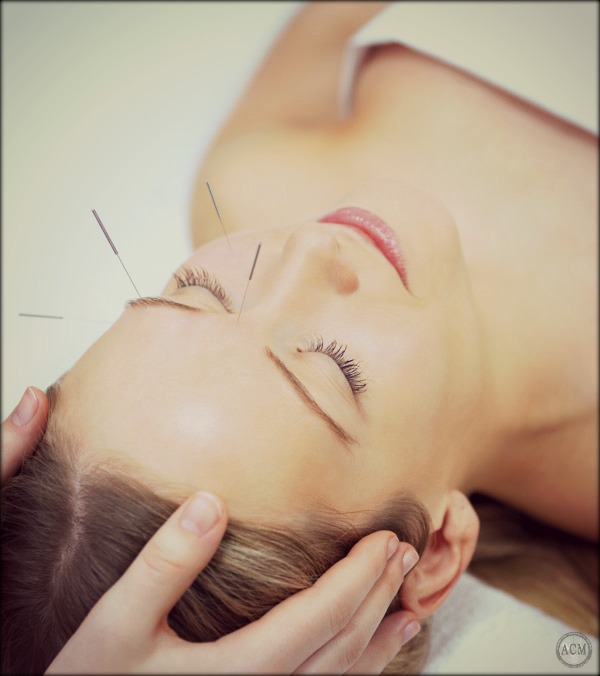
Research shows that acupuncture can help with many more health problems other than just for pain and aches. The problem is usually not with the meridian system itself, but rather with the transmission of energy through the body. Just like the old VHF signals being broadcast over the air, the energy is always present; the signal is always there. Remaining healthy is a matter of transferring that signal as efficiently as possible to all parts of your body, and in this case your meridian system functions as the antenna. The farther out of balance your system becomes, the weaker the signal gets. Bringing the meridians back into its proper balance allows for the signal to broadcast at full strength.
Imbalances choke off vital energy traveling throughout the body, but instead of a fuzzy picture, you get sciatic pain, headaches, asthma, fatigue, numbness, digestive disorders, allergies, chronic sickness, etc.
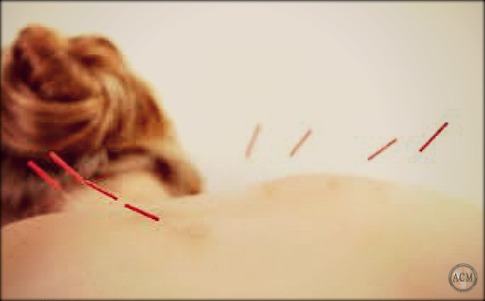
Acupuncture works by supporting and balancing the “signals” being broadcast by your body and laying the ground for optimum expression of health. Clearing the meridian system of imbalances allows the free flow of energy to every cell, organ, nerve, and tissue, resulting in crystal clear, HD reception and picture-perfect health. If you have been feeling under the weather, exhausted, tired or just plain worn down, it may be time for you to come in for a tune-up.
3 Indicators You Need a Tune-Up
Here is a list of three signs indicating that you should immediately come in for an acupuncture tune-up. Both your body and mind will thank you for getting tuned up as soon as possible.
1) Chronic Back and Neck Pain
If you experience chronic back and neck pain, it is highly recommended to come in and receive acupuncture. Back pain is one of the leading reasons that people seek out acupuncture. So if your neck or back are bothering you, it is time you sought out acupuncture.
2) Trouble Sleeping
Acupuncture is a great cure for those who have trouble sleeping. If you experience restlessness, tiredness or overall fatigue you should try acupuncture. Acupuncture improves the body’s functions and promotes overall health due to the needling of specific acupuncture points on the body. Try acupuncture to improve the sleep problems you are currently experiencing.
3) Digestive Problems
A healthy digestive system is important to living an active, healthy and worry-free lifestyle. In order to maintain a high-functioning digestive system it is important that the whole body has a smooth and consistent flow of energy. Acupuncture will help regulate this and promote a smooth flow throughout the entire body, in turn alleviating the symptoms of poor digestive function.
24 Hour Qi Clock
Most people are familiar with the terms diurnal and nocturnal. Diurnal means active during the daytime, while nocturnal means active during the nighttime. Together the two make up a 24-hour cycle known as a day. But, in traditional Chinese medicine, this 24-hour cycle is viewed as much more than just a day in the life. The 24 hours of the day are viewed as increments of time and every two-hour section is associated with a specific energetic meridian that runs through the body. This is known as the Qi clock.
Do you wake up every night or every morning about the same time? Have you ever wondered why? Some people call that an internal clock. In Chinese medicine, this gives a much deeper look into how the body functions though. Chinese medical theory divides the body based upon the 12 energetic meridians. Each of the meridians is assigned a two-hour time slot. For example, the liver meridian is associated with the hours of 1 a.m. to 3 a.m. If you wake up during this time frame, then there is an issue with your liver meridian. So knowing this information can be very important to an acupuncturist/Chinese medicine practitioner.
During a 24-hour period, your energy or Qi (pronounced “chee”) moves through the organ systems in two-hour intervals. Qi draws inward to help restore the body between the hours of 1 a.m. and 3 a.m. The liver cleanses the blood and performs other functions, such as getting the blood ready to travel outward into the rest of the body. Over the next 12 hours, Qi cycles through the organs that assimilate, digest and eliminate food through the body or our diurnal organs. By mid-afternoon, the body begins to slow down again in preparation for the nocturnal phase. The nocturnal phase is all about restoring and maintaining. So when one organ system is at its peak, its counterpart, on the opposite side of the clock is at its lowest point. An example is 7 a.m. to 9 a.m., which are the hours of the stomach. This is when the stomach is at its peak and also why it is recommended to eat a big breakfast. On the opposite side of the clock lies the pericardium, which is associated with the pituitary, hypothalamus and reproductive organs. The pericardium is at its weakest point between the hours of 7 a.m. and 9 a.m.
Here’s a brief summary of the 24 hour qi cycle:
3 a.m. to 5 a.m. is lung time
5 a.m. to 7 a.m. is large intestine time
7 a.m. to 9 a.m. is stomach time
9 a.m. to 11 a.m. is spleen time
11 a.m. to 1 a.m. is heart time
1 p.m. to 3 p.m. is small intestine time
3 p.m. to 5 p.m. is urinary bladder time
5 p.m. to 7 p.m. is kidney time
7 p.m. to 9 p.m. is pericardium time
9 p.m. to 11 p.m. is triple burner time (associated with the thyroid and adrenals)
11 p.m. to 1 a.m. is gall bladder time
1 a.m. to 3 a.m. is liver time
So if you have recurring problems at the same time every day, then there is a good chance that the organ/meridian associated with that time is in distress. This is why traditional Chinese medicine practitioners ask so many questions and also why they look at the body as a whole instead of just one particular organ. By understanding that every organ/energetic meridian has a maintenance schedule to keep daily, you can then treat your body properly so you achieve the ultimate health and well-being and acupuncture can help you achieve that goal. Acupuncturists treat the body based on things like your symptomology, your pulses, your tongue and the 24-hour Qi clock indications you exhibit. The goal is to bring the body back into balance and knowing when the meridians are at their peaks and valleys is a great place to begin.
